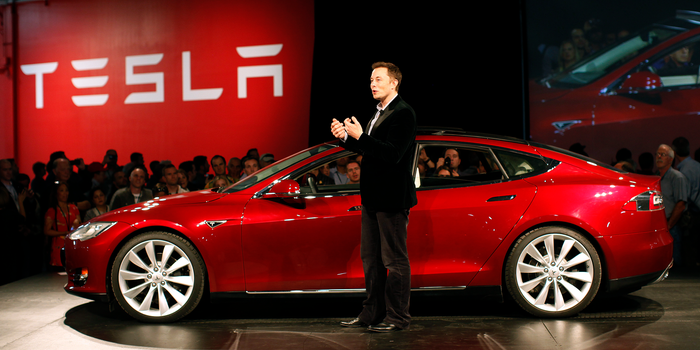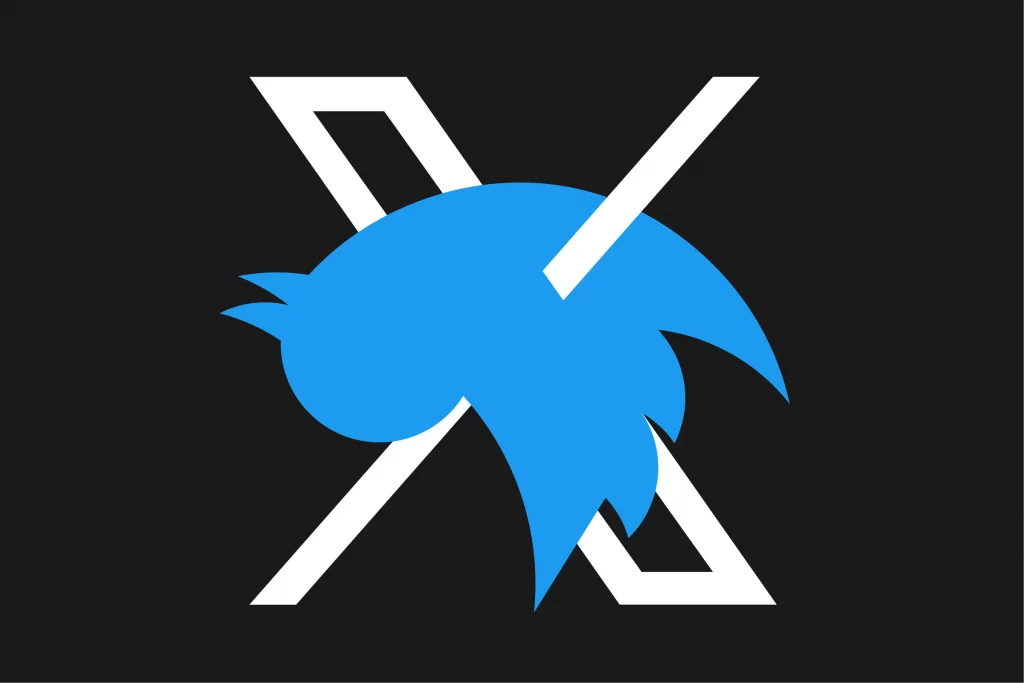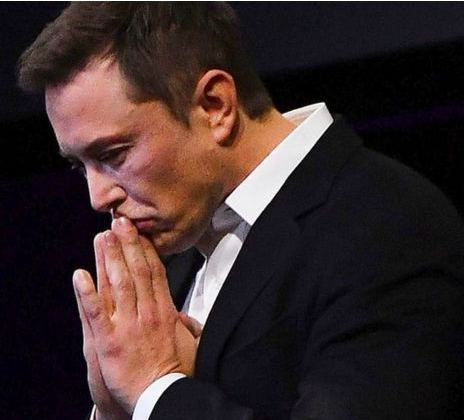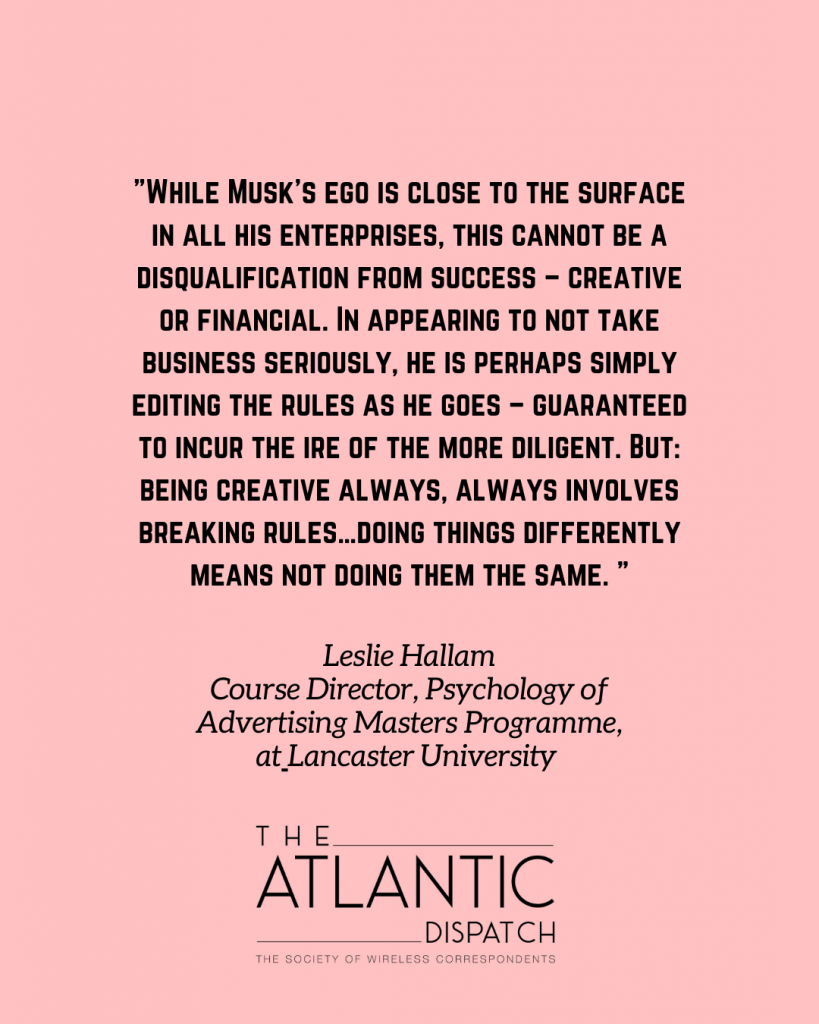Elon Musk, the ‘Maverick Entrepreneur’, enjoyed his’ first foray into the limelight with his involvement in the electric vehicle revolution. In 2004, he joined Tesla Motors as chairman, later becoming its CEO and product architect. His vision was clear: to make electric vehicles desirable and accessible to the masses. Musk’s leadership turned Tesla into a household name, known for producing sleek, high-performance electric cars that challenged the status quo.
The Tesla Model S, released in 2012, rewrote the rules of EVs with its impressive range, acceleration, and tech-forward features. It was not merely a car; it was a statement that electric vehicles could outperform their gas-powered counterparts. Following the Model S’s success, Musk pushed the boundaries further with the more affordable Model 3, designed to bring sustainable transportation to a broader audience.

Since then, it has been an almost stratospheric rise for Musk who has become a household name, part of the lexicon and popular culture. In fact, I dare say not a day goes by when his name doesn’t appear across the media landscape.
He is without a doubt somebody who divides opinion. His unfiltered communication on social media has often generated headlines, both positive and negative. Yet, it is this unvarnished authenticity that resonates with many of his followers, as it showcases the human side of a ‘technological visionary.’
This, of course, brings us swimmingly onto the debacle that is Twitter/X. From the outside, or my perspective at least, Musk looks very much like a man on a mission to implode a brand that was once seen as groundbreaking advancement in social media, where some of the biggest news stories over the past decade were broken.

Twitter both delighted and disgusted millions with celebrities, and political commentators alike using it as a modern-day town square to air their unfiltered views. However, since Musk acquired Twitter, he has seemingly lurched from one disaster to another, introducing a bizarre number of questionable policies, firing staff at will and now stripping Twitter of its identity and rebranding it as X.
You have to ask is this a bold move that could energise a flagging brand? Or does it represent the last throw of the dice for a platform which is becoming more irrelevant with each passing day?
To find out more The Atlantic Dispatch sat down with Leslie Hallam, Course Director, Psychology of Advertising Masters Programme, at Lancaster University

So as always, it’s been a fairly interesting few weeks for Elon Musk. What have been some of your initial thoughts on his rebranding of Twitter?
Hallam: While the ‘X Rebrand’ looks like a risky endeavour at first glance, shedding much of the goodwill associated with Twitter, this needs to be seen in the context of what the latter has become under Musk’s recent stewardship. During his brief tenure, the platform has shed significant numbers, perhaps retaining the ‘relatively hard core’ customers (and those subject to inertia, such as me) only, whilst also stripping out a good deal of ad revenue. In this environment, along with the external milieu of accelerating rivals such as Threads, and even TikTok, the business case to enact a revolutionary strategy – while high risk – is strong.
Certainly from the outside, it may be judged as a last throw of the dice. Do you think this signals the end of the social media platform?
Hallam: In line with past rebrands, this radical departure from the associations of Twitter–both image and processes – paves the way for building a different offer, relatively unhampered by consumer expectations, and allowing brand-stretch into other areas of commerce that Musk clearly covets, such as payments and purchases – the ‘everything, everywhere’ app he sees in the Chinese platform WeChat.
The aborted move from Royal Mail to Consignia was designed to allow the former to embrace electronic communications, and escape the limits of ‘delivering
parcels’…unfortunately, the level of positive regard for Royal Mail, as both a brand and a concept, doomed the transition. While Twitter is well-established in the public mind, it seems unlikely to carry the weight of nostalgia of the Victorian post office, and the revolt seems likely to fade, if ‘X’ manages to align with the values of those inclined to continue using the platform.
Do you think this has been a panic move in reaction to Threads or do you think there was a strategic decision behind it? Without knowing Musk, he does appear to act impulsively.
Hallam: The real difficulty lies here, perhaps. Though Musk is portrayed as a somewhat authoritarian strategic genius, this is a heavily mediated image, perhaps reflecting his ‘personal brand’ more than his real personality. If ‘X’ is actually reformulated along these (neoliberal?) lines, then this may limit appeal – and numbers/advertisers. Musk may be betting here on the world shifting toward libertarian values, in which case, he may be on the money. Other opinions are available.
What has Musk managed to bring to Twitter if anything? Do you think it was a purchase motivated by ego?
Hallam: There seems no doubt that Musk is unafraid of taking risks, is untrammelled by convention, and is a high-stakes player; this has been the source of his considerable success, as well as a source of some controversy about his business approach. Zuckerberg’s ‘Move fast and break things’ approach seems to reign here too – but not without strategy. Musk has long been recorded as wanting an overarching brand X.com, bought back from Thiel out of PayPal to unify his various ‘X’ enterprises: in this context, Twitter -to-X seems entirely predictable, and a component in a long-term coherent strategy.
While Musk’s ego is close to the surface in all his enterprises, this cannot be a disqualification from success – creative or financial. In appearing to not take business seriously, he is perhaps simply editing the rules as he goes – guaranteed to incur the ire of the more diligent. But: being creative always, always involves breaking rules…doing things differently means not doing them the same.
What are your thoughts on the way Musk appears to conduct his business? And if this is to signal the end of Twitter, what will be the platform’s legacy?
Hallam: While I don’t personally care for Musk’s somewhat cavalier approach (after all, real people are damaged when they lose their jobs, seemingly on a whim) the wreckage is no worse than that inflicted by our spin toward Neoliberalism over the past three decades.
If Twitter proves to be in terminal decline, there is an upside to that too – it has not, after all, been free of extremes of negative expression over the years, providing a means of inflicting misery and alienation on an often-innocent population. If in establishing ‘X’, the bucolic fantasy of sweet bird-song can be left behind, allowing a more reality-based assessment of the platform content, perhaps we, as consumer contributors, will be able to see more accurately the true nature of this process of externalising our shadow sides…and moderating our own public behaviours accordingly.

Our thanks to Leslie Hallam, Course Director, Psychology of Advertising Masters Programme, at Lancaster University
